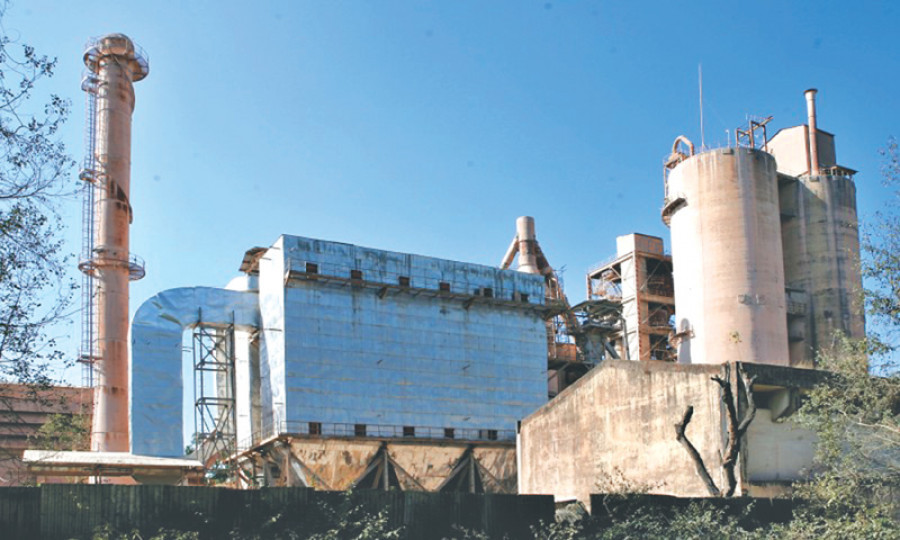Money
Hetauda Cement's losses jump fivefold as virus hits construction and sales
The state-owned company racked up losses totalling Rs 50 million in the last fiscal year.
Subash Bidari
Hetauda Cement Industries' losses jumped fivefold year-on-year as Covid-19 stalled construction activities and cement sales plunged to new lows. The state-owned company racked up losses totalling Rs50 million in the last fiscal year ended mid-July.
This is the second consecutive year of losses after the company started making a profit in fiscal 2015-16. According to its audit report, losses in the previous fiscal year 2018-19 amounted to Rs10.5 million.
General Manager Prem Shankar Singh said they suffered losses in 2018-19 due to machinery breakdowns. “Production and sales of cement declined due to Covid-19 restrictions in the last fiscal year,” he said. He added that a full audit report was yet to come.
According to the factory, it was able to sell only 1.45 million bags of cement and clinker out of the 1.9 million bags it produced in the last fiscal year.
Sarju Aryal, head of the sales division, said the factory was left with about 400,000 bags of unsold cement due to lost business during the peak construction season which lasts from mid-March to mid-May.
“It was largely due to Covid-19 triggered lockdowns and restrictions. The factory stopped clinker production for two weeks due to excess stock in the warehouse.
“The virus is also making it difficult to import coal. We are preparing to resume clinker production by August-end as soon as the remaining inventory of cement is sold,” said Singh.
The factory produced about 2.3 million bags of cement and sold 2 million bags in the previous fiscal year. In 2007-08, the factory was operating at 53 percent of capacity. During that time, its net profit stood at Rs90 million. The profit increased to Rs110 million in 2009-10. Then it went into the red for three consecutive years from 2012-13 to 2014-15.
The factory earned a profit of Rs40 million in 2015-16, despite encountering problems triggered by the trade embargo.
"Even after the Covid-19 crisis ends, it will be difficult to turn a profit without expanding the production capacity. We have already submitted a proposal to the federal Ministry of Industry for capacity development and a report with the estimated amount of capital injection required,” Singh said.
Established in 1976 at Hetauda Municipality-9, Lamsure, the factory started commercial production in 1991. "It is necessary to reduce the cost of production by adding new equipment to compete with the private sector cement industry," Singh said. The factory employs 370 persons and requires 1,000 tonnes of limestone daily.
According to the Trade and Export Promotion Centre, the country imported cement valued at Rs454 million in the last fiscal year 2019-20, a sharp 65.4 percent fall from the previous fiscal year when imports amounted to Rs1.31 billion.
Clinker imports were worth Rs4.41 billion, down 62.2 percent compared to the previous fiscal year when imports stood at Rs11.67 billion.
Dhurba Raj Thapa, president of the Cement Manufacturers Association of Nepal, said that cement factories remained closed for two months during the lockdown that started from March 24. They have resumed operations but only partially as there is no demand for their products in the market, he said.
According to him, demand for cement has plunged 80 percent with both government and private sector construction projects at a standstill due to Covid-19 and official measures to stop the spread of virus by allowing the transportation of only essential goods.
Thapa said that the turnover of the overall cement industry was around Rs600 million daily, and it suffered losses totalling Rs30 billion during the lockdown period.”
The cement industry was performing well in May and June two months after the lockdown, but landslides triggered by heavy monsoon rains halted construction activities and forced many plants to shut down.




 14.24°C Kathmandu
14.24°C Kathmandu















